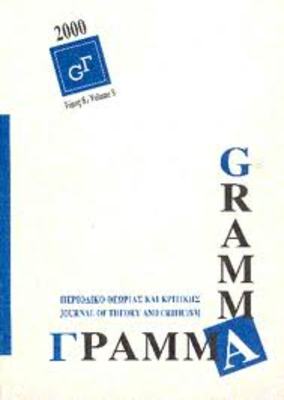Ideology of form in storytelling theater : the politics of inter-medial adaptation in Discovering Elijah, a play about war
Part of : Γράμμα : περιοδικό θεωρίας και κριτικής ; Vol.17, No.1, 2009, pages 165-182
Issue:
Pages:
165-182
Section Title:
Text as texture
Author:
Abstract:
The performance Discovering Elijah, A Play about War (first performed in Israel in 2001), directed by Ruth Kanner as storytelling theater, is based on a literary-documentary text about the 1973 Yom Kippur War written by S. Yizhar, a notable Israeli writer. This is one of the instances in which Kanner's postdramatic search has generated unique directorial patterns that, while not precluding performances of written plays, rely on the power of words, mostly through adaptation of non-dramatic texts. The article focuses on the striking, unsettling performance Discovering Elijah, performed by the Ruth Kanner Theater Group, as a case study to a hermeneutic view according to which the ideology is embedded in the structure itself and becomes an "ideology of form." In this case, this phenomenon is inherently structured in theater which is created most dominantly through the inter-medial co-existence (or clash) of different signsystems—telling (a reductive formulation of the epic principle) and showing. The spatial-anecdotal array by which the story of war is presented in the performance seems to intensify patterns of narrative logic which can be seen as a paradigm of Superstructure. But in the encounter between the narrative action and the physical-perceptual performative acts is embedded a constant tension between a need for an overall rationale for war and a concrete, appallingly incomprehensible experience. It is through this tension that the theater "strikes back," activating its opposing power.
Subject (LC):
Notes:
Το άρθρο περιέχεται στο τεύχος Vol.17, No.1, 2009 με τίτλο The text strikes back: the dynamics of performativity, Περιέχει βιβλιογραφία




